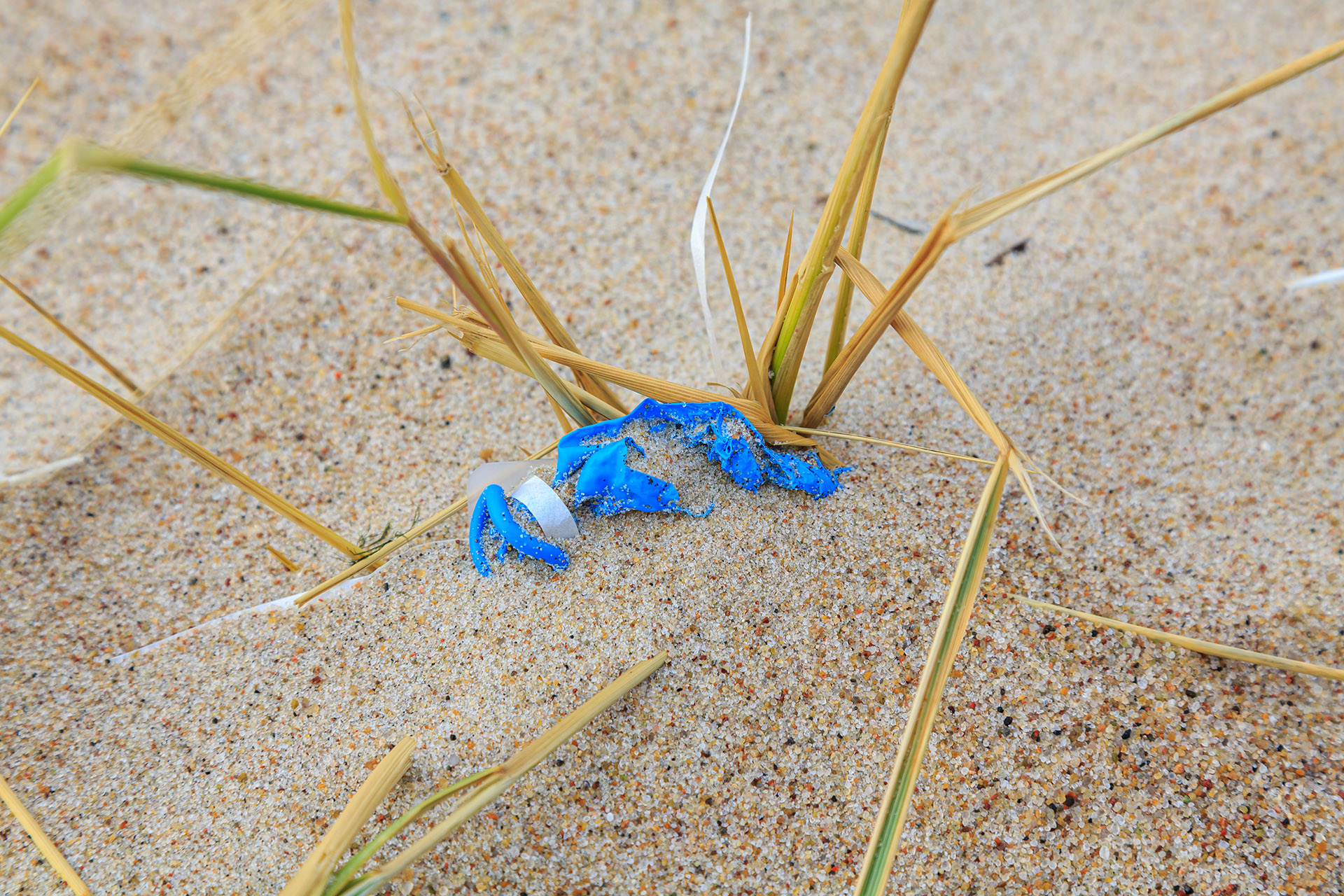The War On Plastic

We turned a blind eye toward the problem for far too long, but the fight to save our waterways, fish, and wildlife from the deadly perils of plastic is underway not just locally, but globally. Part of that fight included taking on the American multinational technology company Amazon.
Nicole Delma of Sag Harbor started a petition to get retailers like Amazon to offer plastic-free packaging options that so far has gathered over 310,000 signatures. Amazon has upped its use of film and bubbled bags in the last year to fit more packages in freight.
Most recycling facilities do not accept these bags or many types of film, so the environmental impact is that they either get put permanently in a landfill, incinerated, or end up as litter, Delma said.
“Amazon is responsible for 46 percent of our packaging, and the U.S. Postal Service is second,” Delma said. “And Amazon controls the postal service.”
Ironically, Delma is from Seattle, where Amazon is based. “I am working on getting our legislators to propose a bill mandating a plastic-free option on Long Island,” she continued. “Then New York, then nationally, for all major shippers.”
On February 24, Delma will meet with Congressman Lee Zeldin to see if he will offer support. She hopes to meet with other politicians as well.
Charlotte Klein Sasso, the proprietor of Stuart’s Seafood in Amagansett, walks the local beaches collecting plastic and balloons. One day she picked up so many spent balloons “I looked like a circus clown,” she said.
Sasso said the obvious way to take on Amazon is to shop locally.
“When you go to local stores, you support the local economy,” she said. “Think about it before you use Amazon.”
It is estimated that up to 12 million metric tons of plastic enter our oceans each year. Discarded plastic fishing lines entangle turtles and seabirds, and plastic pieces of all sizes choke and clog the stomachs of creatures that mistake it for food, from tiny zooplankton to whales.
It begins on land. Plastic has become the go-to packaging for hundreds of consumer goods that are discarded after a single use — and contrary to popular belief, little of it is recycled.
Another solution is for consumers to be more patient; everything doesn’t have to be delivered overnight. Amazon could save millions of tons of shipping material by waiting for trucks to fill up.
One problem suffered in this country for far too long was the belief that plastics were being recycled.
“Single-use plastics are filling up our landfills, choking our rivers, and contaminating our oceans,” according to Greenpeace, a non-governmental environmental organization with offices in over 55 countries and an international coordinating body in Amsterdam. “We have been told that the individual should simply recycle away the billions of tons of plastics corporations produce and that it will make the difference needed to sustain our planet. We have been told a lie.”
Amazon has been defending its increased usage, saying its SmartPac envelopes are recyclable and it’s “working to improve its packaging options,” an Amazon spokesperson said. “Over the past 10 years, our sustainable packaging initiatives have eliminated more than 244,000 tons of packaging materials, avoiding 500 million shipping boxes.”
But the Washington Post reported the last holiday season was the busiest ever for online sales and “created a massive hangover of packaging waste” toxic to the environment.
Susan McGraw Keber, an East Hampton Town Trustee, created a T-shirt that illustrates the perils of using balloons. Sasso sells it in her fish store, and it is sold at many town-sponsored events. Southampton Town just finished gathering residents’ opinions about a ban on balloons, when both towns have already banned plastic bags. New York state is enacting a ban on single-use plastic bags effective March 1. Meanwhile, Amazon is experiencing pushback from anti-plastic activists from all over the world.
“It’s not a matter of too little, too late,” Delma said. “Susan Rockefeller once said, ‘If it’s flooding, turn off the tap.’”
Jeff Bezos, the founder and CEO of Amazon, apparently has heard the mounting criticism that his company is becoming perhaps one of the world’s most prolific polluters. He announced on February 17 that he will pledge $10 billion to “combat climate change.”
The global initiative “will fund scientists, activists, NGOs — any effort that offers a real possibility to help preserve and protect the natural world,” Bezos posted on Instagram. “We can save Earth.”
This huge, personal commitment comes only four months after Amazon and Global Optimism co-founded the Climate Pledge — a promise by corporations to reach net zero carbon emissions by 2040.
Amazon officials stressed Bezos’s later gesture is a “personal commitment” that will not entail using company funds.
The initiative, called the Bezos Earth Fund, will begin giving out grants this summer. The $10 billion commitment constitutes less than eight percent of the world’s richest man’s estimated $130 billion net worth, according to CNN.
“Even so, it is one of the biggest charitable pledges ever,” that network reported.
rmurphy@indyeastend.com



